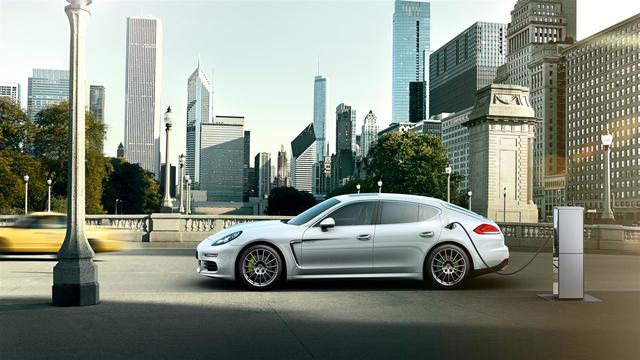New Energy Industry Task Force recommends electric cars

Earlier this year, Nevada Gov. Brian Sandoval convened a New Energy Industry Task Force to study how emerging sustainable energy technologies might be applied to help grow the state’s economy by creating new local industries and more jobs in the energy sector.
Technical advisory committees were formed to research best practices for electric utility grid modernization, clean energy sources, distributed energy resources and energy storage technologies.
Participants in the task force and advisory committees were drawn from state and local government, the solar power industry, geothermal power industry, utilities, construction companies, homebuilders, high-tech companies, automotive companies, labor unions, academic institutions and supporting nonprofit organizations throughout the state.
Meetings began in March and extended through August, when recommendations were compiled, voted on and submitted to the governor as a final list in September.
Support for transportation electrification included the adoption of more electric cars within Nevada. Transportation fuel for these vehicles would be based on electricity produced within the state, rather than gasoline or diesel that would be imported from outside the state through a pipeline, then trucked to a nearby service station distributor.
The adoption of electric transportation, powered by homegrown electric fuel, would create new industries and jobs locally while boosting the state’s economic output. Adoption of more electric vehicles within Nevada also would improve air quality by helping reduce carbon emissions in urban areas of Clark and Washoe counties.
However, road usage tax revenues normally collected at the service station gasoline pump would need to be applied fairly to electric cars, as well.
The task force recommended that the Public Utilities Commission of Nevada work with the Governor’s Office of Energy, the Nevada Department of Transportation and regulated utilities to accelerate the adoption of electric vehicles in the state and promote recharging station infrastructure, as well as identify any legislative changes that might be required:
One suggested plan to boost electric car sales to consumers would be to offer additional financial incentives, such as a rebate at the dealership point of sale that would offset state sales taxes up to $2,500 per vehicle. The cost of this program is estimated at $2.25 million per year to the state of Nevada in redirected sales tax revenues. The effects of the rebate could produce a 50 percent increase in annual electric car sales within the state to 900 vehicles per year.
Policy guidelines were also recommended for members of the 2017 state legislative session:
“In order to limit this ongoing cost impact, the tax credit or point of sale rebate program could have a sunset provision, for example, be in effect for four years between 2017-2020, and/or be capped at a certain number of EVs entering the market.”
Increasing the number of electric vehicles and the completion of an “electric highway” system in Nevada falls in line with the Governor’s Accord for a New Energy and Strategic Framework. The accord encourages clean transportation options of reducing the dependence on petroleum and reducing carbon emissions.
Federal income tax credits also are still available to consumers who purchase qualified plug-in, electric-drive vehicles. The federal tax credit for qualified electric vehicles can be up to $7,500, depending on the capacity of the vehicle’s battery pack in kilowatt-hours. A separate federal tax credit for the purchase and installation of electric vehicle supply equipment, to recharge an electric car in a home garage, is available to deduct 30 percent of the cost up to a maximum of $1,000.
The quantity of plug-in electric cars offered by Nevada dealerships will increase during 2017.
Available models next year include both plug-in hybrid electric vehicles, capable of running on either electricity or gasoline, and battery-powered electric vehicles that run on electricity stored in an onboard battery pack.
Plug-in hybrid electric vehicle models for 2017 that will be available in Southern Nevada include the Chevrolet Volt, Ford Fusion Energi, Ford C-Max Energi, Porsche Panamera S E-hybrid, Porsche Cayenne S E-hybrid, BMW i3 REx and BMW i8.
Battery-powered electric vehicle models for 2017 that will be available in Southern Nevada include the Tesla Motors Model S and Model X, Chevrolet Bolt, Nissan LEAF, and BMW i3.